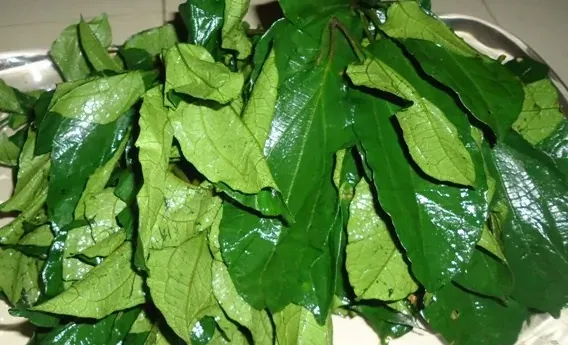
West Africans plant the tropical vine Telfairia occidentalis for their delicious seeds and as a leaf vegetable. The plant is also known by the names fluted pumpkin, fluted gourd, and ugu. T. occidentalis is native to southern Nigeria and belongs to the Cucurbitaceae family.
Though it is grown in several West African countries, Nigeria is the primary location for fluted gourd cultivation, which is mostly utilized in soup and medicinal products. Though the fruit in question is unpalatable, the gourd's seeds are rich in fat and protein and can therefore support a diet that is well-balanced. This perennial, which is dioecious and tolerant of dryness, is typically planted in a trellised manner.
Although the Efik, Ibibio, and Urhobo tribes in Nigeria, as well as a total 30 to 35 million other indigenous people, have traditionally utilized Telfairia occidentalis, it was primarily employed by the Igbo tribe, who still grow the gourd for food and traditional medicines.A common topic in Igbo mythology, the twisted gourd is said to have therapeutic qualities and was used to treat the weak or sick as a blood tonic. It is native to southern Nigeria and benefited the Igbo tribe Akoroda's worldwide food commerce.
Indeed, many Nigerians "believe" that eating pumpkin leaves is healthy, but a sizable portion of them are genuinely unaware of the precise advantages it offers. Pumpkin leaves come in a variety of species, but the one we shall discuss is the most common, known to Nigerians as "telfaira occidentalis." Pumpkin leaves are also referred to as "Ugwu" in that country. Although a lot of people like to prepare meals it as a vegetable with all the toppings to help pique their appetite, some just boil it and eat it that way, or combine it into a shake. Whatever the situation, every style is certain to provide a certain amount of different nutrients.
While remaining incredibly low in calories, pumpkin leaves include a good quantity of calcium, iron, vitamin C, and vitamin A. In addition to the leaves' benefits for vision, they provide several other benefits for the skin. In addition to forming scar tissue and promoting wound healing, vitamin C also keeps teeth, skin, and bones healthy. But you should always be receiving sufficient vitamin C in your diet, as the body cannot make this vitamin or even keep it.
Regarding calcium, you were most likely informed by your mother when you were a youngster that you require a certain amount of calcium for strong bones and teeth. But if you're a woman, you need to eat enough calcium to maintain strong bones and help prevent osteoporosis. Studies have also suggested that magnesium may help lower the chance of heart failure.
As a component of hemoglobin, iron helps our muscles absorb and use oxygen as well as transmit it from our lungs to various areas of our body. If you're familiar with the word "anemia," an iron shortage may be the culprit.These leaves assist in naturally supplying a healthy dosage of iron, which is especially important for women and children. These are the top ten amazing health advantages of eating pumpkin leaves.
1 . Preventing seizures: In ethnomedical practice, young leaves are cut, combined with salt and coconut water, and then preserved in a container for use in treating seizures.
2 . Reduces cholesterol: leaves possess a hypolipdemic action and could be an effective treatment for hypercholesteremia.
3 . Boost fertility: Research specifically indicated that pumpkin can both promote sperm and restore t3sticular damage.
4 . It has benefits for the liver.
5 . It has antimicrobial effects.
6 . The leaves are a vital component in the treatment of anemia and are high in iron.
7 . Nursing moms are in great demand for them because of their notable lactation properties.
8 . It has a hypoglycemic (lower blood sugar) impact. It benefits diabetics.
9 . The substantial amount of protein of leaves on plants, such those of pumpkins, may contribute to the body's daily protein needs.
Upvoted. Thank You for sending some of your rewards to @null. Get more BLURT:
@ mariuszkarowski/how-to-get-automatic-upvote-from-my-accounts@ blurtbooster/blurt-booster-introduction-rules-and-guidelines-1699999662965@ nalexadre/blurt-nexus-creating-an-affiliate-account-1700008765859@ kryptodenno - win BLURT POWER delegationNote: This bot will not vote on AI-generated content